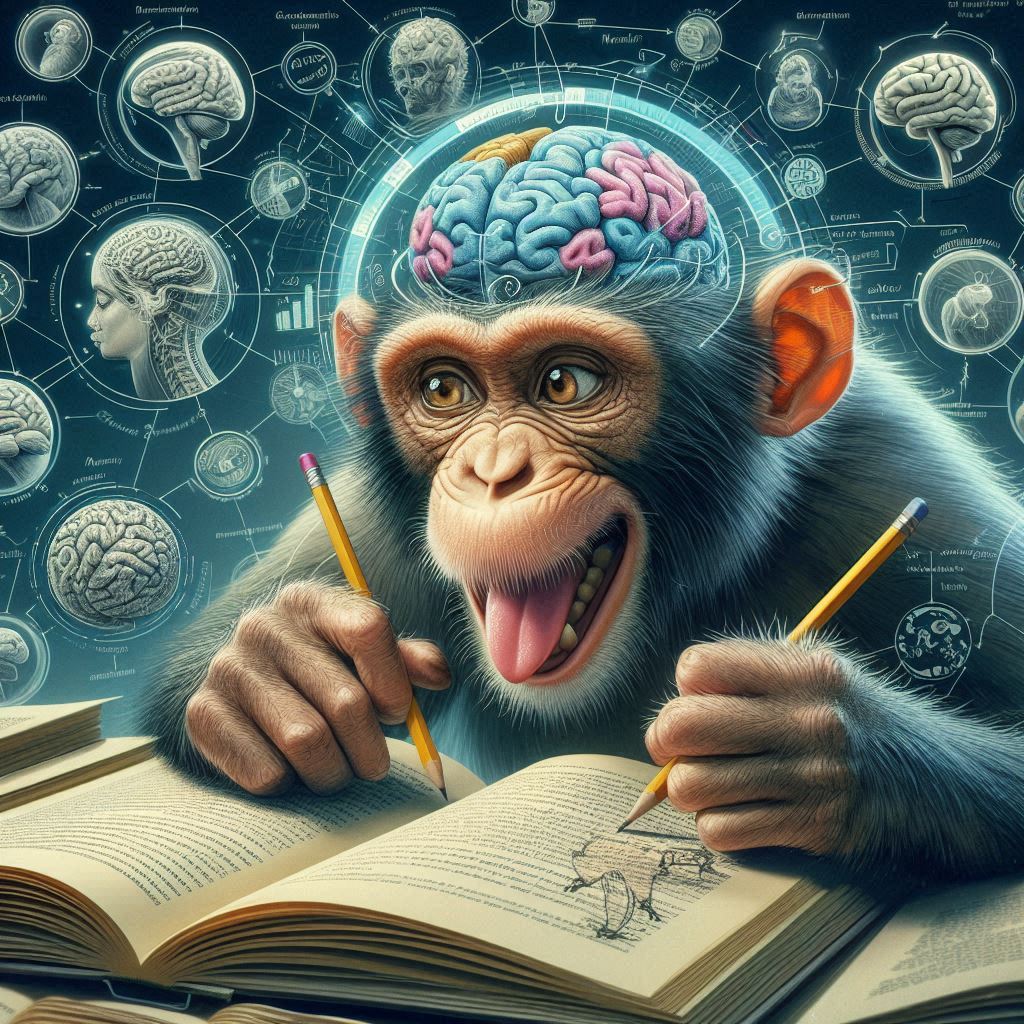
Monkey Mind Games: Understanding Primate Intelligence
Share
Monkey Mind Games: Understanding Primate Intelligence
A deep dive into the clever, crafty, and occasionally chaotic minds of our primate cousins.
While humans love to brag about building civilizations and writing symphonies, monkeys have quietly been crushing IQ tests of their own—often with more wit than we’re comfortable admitting. From solving puzzles to deceiving rivals, monkeys aren’t just smart—they’re strategic, social, and sometimes suspiciously human.
🧠 Cognitive Skills That’ll Blow Your Banana Peels Off
🧩 Problem Solving
Capuchins and macaques have been observed:
-
Using tools like sticks to fish for termites or rocks to crack nuts
-
Solving multi-step puzzles to retrieve food
-
Learning by observation and imitation, not just trial and error
One study even showed monkeys manipulating vending machines in zoos—insert token, get treat. That’s not just training—that’s transactional thinking.
🎭 Deception & Social Manipulation
Ever seen a monkey fake a predator alarm to steal unattended food?
That’s not instinct—that’s strategic deception, a hallmark of complex intelligence.
Monkeys engage in behaviors like:
-
Feigning innocence when caught breaking group norms
-
Hiding food from more dominant members
-
“Trading favors” within social groups (e.g., grooming for support)
These aren’t just antics—they’re calculated decisions in a social economy.
💬 Communication & Memory
Monkeys may not write haikus, but they:
-
Use specific alarm calls for different threats (snake vs. eagle)
-
Remember faces, voices, and social ranks
-
Pass on cultural behaviors like washing sweet potatoes or using tools—across generations
Some research even suggests monkeys understand basic math, including quantity estimation and sequencing.
🐒 Famous Monkey Geniuses
🧠 Kanzi the Bonobo (though technically an ape):
-
Used lexigrams to communicate
-
Understood hundreds of symbols and verbal commands
-
Showed empathy and humor
🧠 Natasha the Macaque (Israel):
-
Displayed unusual calmness, creativity, and leadership
-
Outperformed her troop in memory tasks
🧠 Capuchins in tool-use studies (Brazil):
-
Created “stone hammer” techniques passed down culturally
-
Even selected tool types based on task—hello, primitive engineers
🤯 The Big Question: How Smart
Are
They?
Researchers measure monkey intelligence through:
-
Mirror self-recognition tests (a partial success)
-
Object permanence and delayed gratification trials
-
Mazes, memory games, and numerical reasoning
The result?
While monkeys don’t pass all the same cognitive benchmarks as great apes or humans, they consistently demonstrate adaptive learning, memory, logic, and emotional nuance.
💡 Why It Matters
Understanding monkey intelligence helps us:
-
Better design enrichment in sanctuaries and zoos
-
Improve conservation strategies
-
Rethink what “intelligence” means beyond a human lens
It also humbles us: maybe we’re not the only species playing mind games.
🧠 Final Thought
Monkeys aren’t just banana-eating tree acrobats—they’re thinkers, schemers, and sometimes better at teamwork than office managers. Their brains remind us that intelligence isn’t always about words—it’s about adaptability, awareness, and wit.
